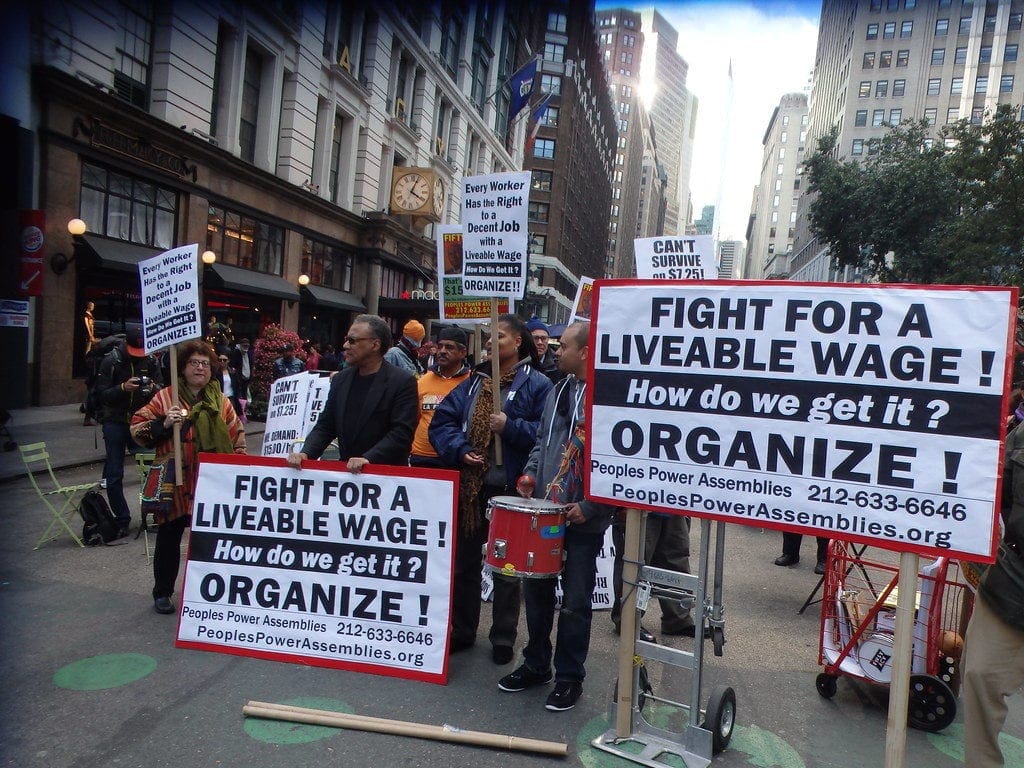Work keeps people from committing crimes — at least that’s what years of research have proven, with a study from 2015 in particular demonstrating the importance of offering disadvantaged youth a summer job to reduce violent crime. So why aren’t we seeing a greater number of community leaders, labor organizations, and anti-violence advocates urging public policymakers to bring an end to minimum wage laws? After all, unskilled teens aren’t being able to obtain jobs on their own due to high minimum wage standards.
Instead, we see the opposite. Political groups and advocacy organizations actually joining the pro-minimum wage movement, pushing both local and federal lawmakers to impose ever-increasing wages on businesses and entrepreneurs, and forcing job creators to limit the number of unskilled workers they can afford.

As The Acton Institute explains in this article, African American males are much more likely to be victimized by high minimum wage laws than other groups.
With every ten percent increase in the minimum wage, data regarding those between the ages of 16 and 24 shows, employment is reduced by 2.5% for young white males, 1.2% for Hispanic males, and a staggering 6.5% for African American males. And while most of us have heard of the impact of the Great Recession on our economy, researchers found that wage hikes had an even more devastating effect, especially among the African American youth.
Considering the evidence, it’s imperative that groups that seek to help disadvantaged youth understand the unintended consequences of minimum wage hikes, whether skilled and experienced workers are able to obtain an artificial boost to their incomes or not.
If young people are unable to start somewhere, especially if they have little access to higher education, loosening minimum wage requirements is a sure and easy way to boost the economic opportunities for Americans in the lower income brackets.
As The Acton Institute elaborated, we could see a great drop in the number of violent criminal cases if wage laws were eliminated. So why not allow cities and states to experiment with this?
As economist Murray Rothbard once explained, a minimum wage law makes it criminal for individuals to accept voluntary wage contracts, transforming the law in compulsory unemployment.
“In short,” he wrote, “you can have as much unemployment as you want, simply by pushing the legally minimum wage high enough.”
There is nothing dignified in forcing disadvantaged people to choose between welfare or crime, and yet, that’s exactly what proponents of higher wage laws do. Until the young and unskilled are able to look for work and find it, they will continue to respond to the incentives created by these laws, looking at criminal actions or government dependence for sustenance.

























